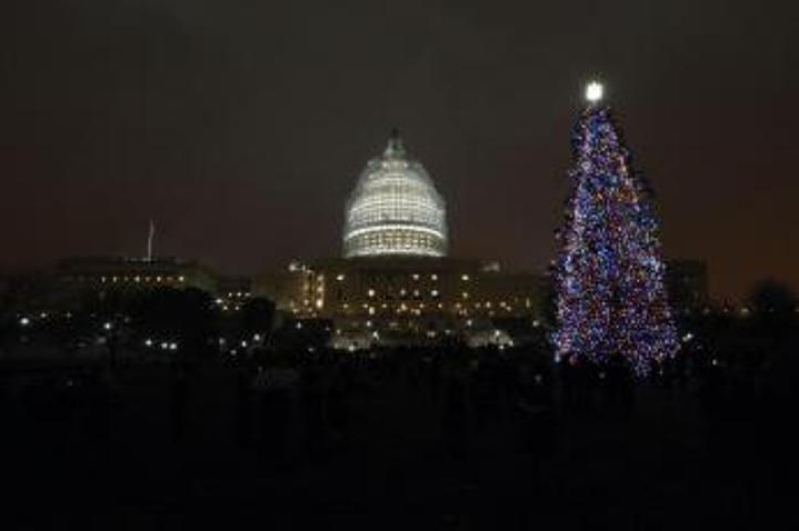
Recently, there was a big uproar about a Christmas tree ban in a Virginia VA building. The ban noted that Christmas trees "promote the Christian religion," and so they weren't going to be allowed on what was apparently considered government property. The way that this battle has apparently come to a temporary close is that other symbols of the season must also be displayed so that the holiday is more all-inclusive. Never mind that it is called Christmas. In addition, the VA employees can still be punished if they are caught saying, "Merry Christmas" to anyone in a public area in the Virginia VA building -- including veterans.
Alliance Defending Freedom Senior Council Erik Stanley stated that, "It's ridiculous that people have to think twice about whether it's okay to celebrate Christmas as Christmas rather than some watered-down winter holiday. The courts have never ruled that government employees must hide any hint of religious expression. To the contrary, the courts have clearly stated that any such requirement demonstrates an unconstitutional hostility toward religion. If government bureaucrats are afraid of causing offense, they should realize that rules like this offend both the First Amendment and the overwhelming majority of Americans, 95 percent of whom celebrate Christmas."
It's also interesting to note that Christmas is still considered a federal holiday, and federal employees even get holiday pay for not working when this does not apply to Hanukkah and Kwanzaa. The White House and Capitol Buildings even have Christmas trees. Other public locations also typically have Christmas trees such as malls, doctors offices, police stations, fire stations, even many cities across the United States often have them in their public town squares.
As for the average American, most people love having a beautifully decorated Christmas tree in their home during the Christmas season -- whether they are Christian or not. But if they happen to be Christians, they often also have a nativity scene either under the tree or in a prominent place in their home such as on a fireplace mantle.
All of that being said, Christians may be missing the bigger picture with this fight about the Christmas tree ban at the Virginia VA. Though a Christmas tree has become symbolic of the Christmas season, it has never been an actual Biblically based symbol of Christmas. The primary Christian symbol for Christmas really ought to be a nativity scene and not a Christmas tree. So if there's going to be an uproar about something, it ought to be a manger scene and not a decorated tree.
There have been multiple attempts to remove nativity scenes from places that have had them displayed for decades. Here are just a few examples:
- The small town of Brookville, Indiana had a group challenge the town over a nativity scene that was placed on the property next to the town's courthouse. The scene has been getting placed there during the Christmas season for 50 years before the challenge, which came during the 2014 Christmas season.
- A church in Santa Monica, California was banned from placing a nativity scene on public property, even though the scene was a part of the city's Christmas tradition for decades.
- In a rather interesting story back in 2006, a Seattle-Tacoma real estate agent wanted to add a nativity scene to a display of Christmas trees at the Seattle-Tacoma International Airport. His request was refused.
- In a situation in France where a nativity scene was banned, an interesting question was raised in an attitude of sarcasm over the ruling: "Why not ban Christmas and the public holidays that go with it?"
Many would argue that Christmas has become very commercial. Black Friday is one of the biggest shopping days of the year and is called that because many stores get to end their fiscal year in the black after that day and those leading up to the Christmas holiday. While there may be a move to take Christ out of Christmas, there will likely always be some version of the holiday because too many people are making lots money off of it.
It's interesting how there is a move to ban Christian religious symbols connected to Christmas, but federal, state and local governments are quite happy to receive the sales tax money from Christmas trees and all the other "religious" Christmastime purchases. Since all of that is also a part of Christmas, why is it that there has never been a news headline that reads something like, "Freedom From Religion Organization Sues Government Over Collecting Sales Tax on Christmas Purchases"?






